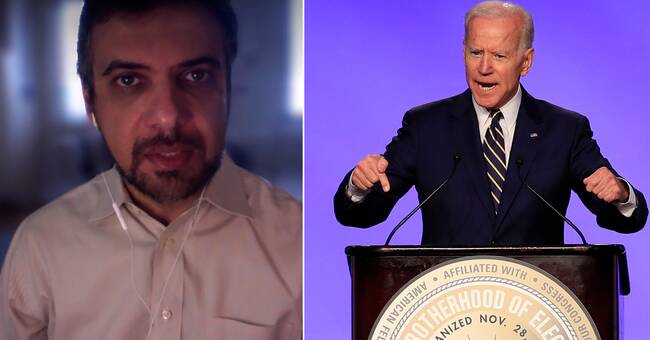When the White House recently released an intelligence report on the murder of Saudi journalist Jamal Khashoggi, it was foreign policy dynamite.
Because while Biden's predecessor Donald Trump kept the report secret, Biden did the opposite and in addition, Saudi Crown Prince Muhammad bin Salman, MBS, was pointed out as extremely responsible.
Some have demanded concrete sanctions against MBS itself.
Critics include the organization DAWN, Democracy for the Arab World Now, which Khashoggi was founding when he was assassinated.
- We are extremely disappointed with this, says Raed Jarrar from DAWN to SVT's Foreign Office.
- The message is that the United States' allies are immune.
They can do whatever they want.
They can cut dissidents to pieces without the United States acting.
Harder tone from Biden
Expectations of Biden have grown, not least since the election campaign when he promised to break with Trump's more comradely actions against authoritarian leaders.
- The days when the USA cuddles with dictators are over, Joe Biden said then.
The United States has also sharpened its tone against states such as China and Russia.
At the same time, the United States also has allies who are dictators, not least in the Middle East.
Does not cut the straps
On that point, experts point out that politics will probably remain the same, even if the direct gold rush between leaders becomes less cordial.
The United States has values, but also realpolitik interests that it holds on to.
- Biden will not like the dictators who are really hostile to the United States, such as Putin and Xi Jinping.
But he will not cut ties with all the dictatorships in the world.
No American president has done that before, says Mike Winnerstig, head of the security policy unit at the Swedish Defense Research Agency.
Wants to counter Iran's influence
The United States is dependent on Saudi Arabia for several different reasons, not least because both countries have a common interest in reducing Iran's influence in the Middle East.
- A lot is about being able to play a role in problematic regions.
To handle security threats on the spot, but also threats to the United States and the western world in general, says Katarina Tracz, head of the think tank Frivärld.

